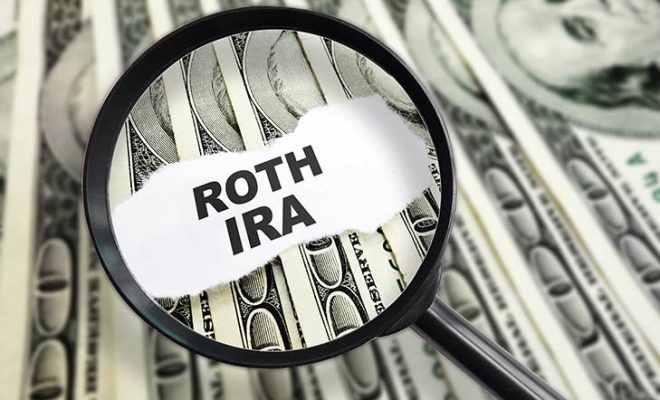A Roth Conversion Can Hurt You in Three Ways

In recent times, investors have started converting their traditional Individual Retirement Account (IRA) investments into a Roth IRA. Though there are several benefits to this conversion, a Roth IRA is not always the best option to choose, especially if you have managed to save a good corpus for your post-retirement life. People generally see the one-sided story of tax-free withdrawals from Roth IRAs and ignore other related aspects. The flipside to a Roth IRA, however, is the taxation that is levied upon the investor, that sometimes ends up bringing the investor to a higher tax bracket. Thus, the decision of converting your traditional IRA to a Roth IRA needs to be made diligently.
Here are some disadvantages to a Roth IRA conversion:
- Higher taxation
- Missing out on return generating investments
- No ability to monitor withdrawals
Converting your traditional IRA to a Roth IRA will allow you tax-free withdrawals, but that is not an upfront phenomenon. You need to pay taxes for the first five years after which you are allowed a tax-free withdrawal from your Roth account. Here’s an example to simplify this:
Consider a scenario where you have saved $1,00,000 in your traditional IRA and are planning to convert that to a Roth account. Based on the tax slab that is applicable to you, you will most probably fall under the 24% bracket, bringing your tax amount to $24000. Your taxes will further increase if you have managed to save more.
In addition to this, there is always a high uncertainty of the tax bracket. This means, if you opt for a Roth conversion, you might end up in the higher tax bracket now, whereas, you may find yourself in a lower tax bracket later, if you happen to retire with a traditional IRA.
The biggest disadvantage here is that there is no sure way to know which tax bracket you will finally end up in. Thus, the conversion will always be a calculated guess that may or may not go as per your retirement plan.
With all your savings converted to a Roth IRA, you may miss out on investing in high return generating investments like stocks and mutual funds. Of course, there is no denying the fact that markets are also highly uncertain and unpredictable, but calculated guesses can be made to ensure minimal risk and maximum returns.
Once the money is pushed into a Roth account, it comes under the no tax deduction category, but there is also no return generated over that money. This initially seems like a good option since no taxes are levied, but later, when inflation factors in, the bare minimum cash savings may not seem like a lot of money.
This is not just a one-time situation but has a lasting effect. This is so because, when your money does not grow, you will not be able to create more wealth. Moreover, you will be missing on the chance to recover your deductions made under taxes initially paid before or after conversion. The chances of this recovery further reduce when you are nearing retirement.
The fact that Roth account withdrawals can be made without paying taxes is both a blessing and a curse. In the traditional IRA account, an inbuilt monitor or restriction governs the withdrawals that can be made during the retirement period. On every withdrawal, taxes are levied, which is why people carefully take money out of their traditional IRAs. But with a Roth IRA, this monitor is not present, allowing investors to make as many withdrawals as they want. Although, such an arrangement is quite helpful in many cases like an emergency or unplanned expense, it has a high potential of leading to a quick depletion of assets.
Repeatedly exhausting your assets can also lead to a stranded future that is generally lived in stress, especially when there is no other source of income available in most cases. It requires a careful assessment of your savings and plans to ensure that the assets are equitably spread over your retirement and are dynamic enough to constantly create wealth.
In addition to this, with traditional IRAs, there is a 10% penalty levied if you make a withdrawal from your pre-tax IRA. This is over and above the normal income tax that you will be liable to pay. On the other hand, in the case of a Roth IRA, no such penalty is levied. Going by the general rule of saving, you will be able to make a considerable saving only if you let your money be preserved uninterrupted over a longer period. Once you know you will not be penalized on withdrawals, it may also become a habit to make the first withdrawals from a tax-free account in case of any need.
Hence, Roth IRA savings are good only for those who have a strong will power and can exercise discipline to let their savings be untouched, until a time comes when they genuinely have a need to use the funds.
To sum it up
Roth IRAs come with both advantages and disadvantages. The cons, however, can be highly detrimental, eventually leading to a reduction in your saved assets for the more needful times. Planning this conversion can also be stressful as it requires you to take some calculated and well-informed risks.
Are you thinking of converting your traditional IRA to a Roth IRA? It can be helpful to get a professional opinion from Financial Advisor for such complex matters.









